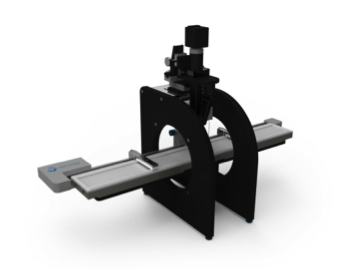Interfacial Shear Rheometer

ISR
The Interfacial Shear Rheometer (ISR) is a unique instrument that provides an accurate and quantitative method to measure the shear properties of fluid interfaces (gas/liquid or liquid/liquid). This is not possible with rotational rheometers as they lack the sensitivity to probe within a thickness of a few nanometers.
The KSV NIMA ISR can be combined with a Langmuir trough, allowing measurements on both soluble and insoluble films. Applications include the examination of phase transitions, determination of thin film structure and emulsion stability.
Applications
Emulsion and foam stability, bubble and micelle formation, breakage and fusion and interfacial reactions are largely affected by the rheological properties of the interface. Applications can be found in many industries. For example proteins, polymers, pigments, fluoroalkanes and other emulsifiers are strong stabilizers in dispersions and used in the pharmaceutical, cosmetic and food industries.
- Prediction of emulsion, froth and foam stability. Viscoelasticity of an interface can predict the stability of a complex fluid. Micelle/droplet fusion and fission are largely dependent on the interface viscoelasticity.
- Determination of thin film structure. The presence of networking, hydrogen bonding and other interactions can be detected from the viscoelastic behavior of films.
- Examination of phase transitions. Phase transitions in a monolayer (thin film) can result in a change in the rheological properties of the layer.
- Real-time monitoring of surface reactions. Surface gelation, network formation and protein denaturation at interfaces are detected from the changes in the viscoelastic properties at the interface.
- Continuous monitoring of molecule adsorption into interfaces. In many biological systems the adsorption and desorption at interfaces and surfaces can change viscoelasticity. Processes in cells such as mitosis are highly dependent on membrane rheology.